How the royal succession works
The rules of succession have been regulated by Parliament since the Act of Settlement of 1701
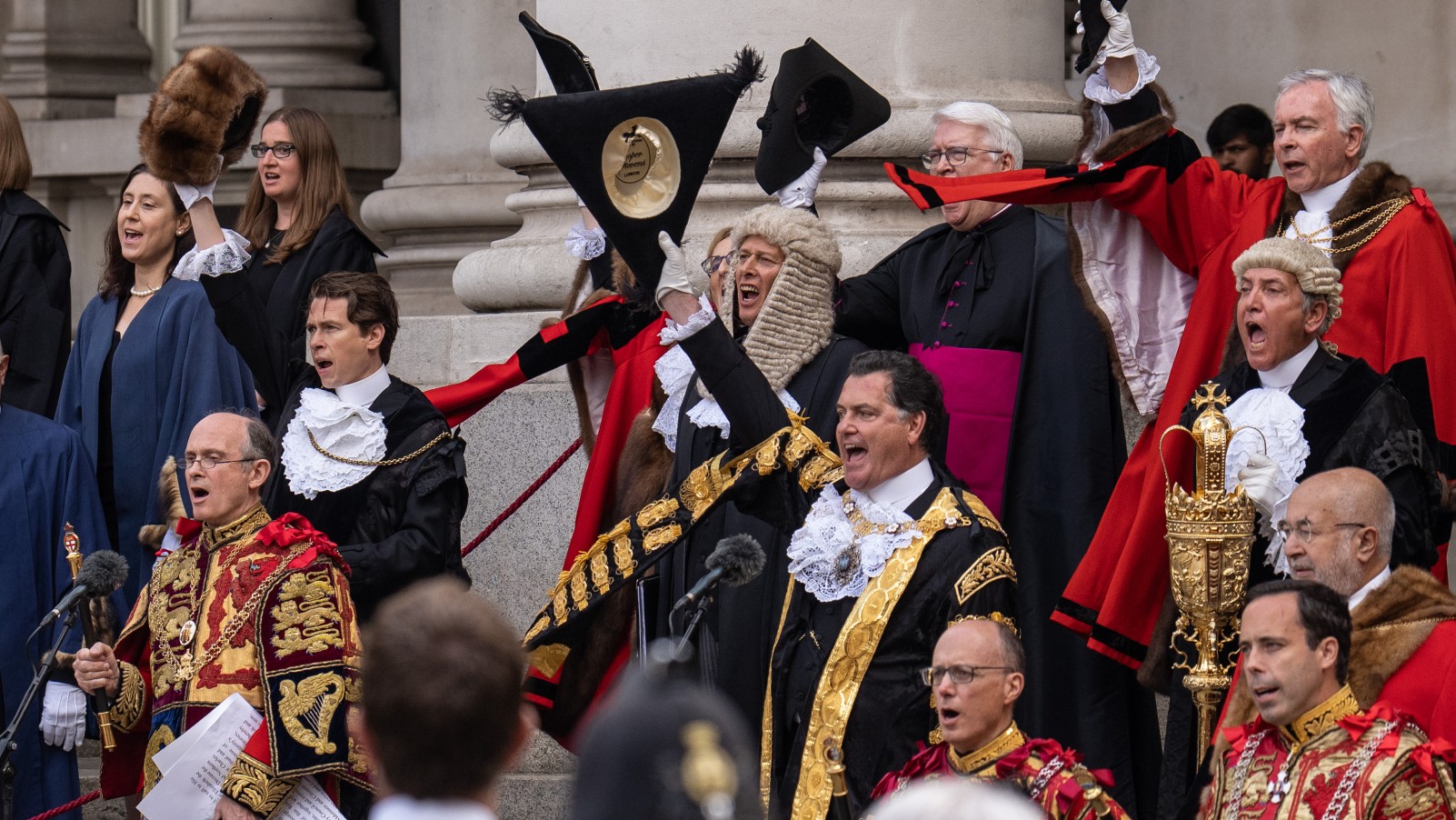
A free daily email with the biggest news stories of the day – and the best features from TheWeek.com
You are now subscribed
Your newsletter sign-up was successful
Mourning the passing of one monarch and installing another is a complex process that requires meticulous planning.
What sort of plans are in place?
Both ceremonially and legally, the sovereign personifies the British state: he or she is head of the executive, an integral part of the legislature, head of the judiciary, commander-in-chief of the Armed Forces – and supreme governor of the Church of England. The process of succession is complex and the ceremony is minutely choreographed.
Operation London Bridge, first drawn up in the 1960s but regularly updated, lays out the exact sequence of events between the Queen’s death and her funeral. It begins with her private secretary informing the Prime Minister, and covers the process of “official notification”, the 12-day period of mourning, and her state funeral, detailing every point: instructions for flying flags at half mast and the firing of gun salutes, the exact duration of the coffin’s slow march from St James’s Palace to Westminster Hall (38 minutes). Alongside this runs Operation Spring Tide, the plan for Charles’s accession.
The Week
Escape your echo chamber. Get the facts behind the news, plus analysis from multiple perspectives.

Sign up for The Week's Free Newsletters
From our morning news briefing to a weekly Good News Newsletter, get the best of The Week delivered directly to your inbox.
From our morning news briefing to a weekly Good News Newsletter, get the best of The Week delivered directly to your inbox.
How exactly did Charles become King?
Under the common law rule “Rex nunquam moritur”, meaning “the king never dies”, the monarchy passes at the moment of death. When monarchs had direct authority, this prevented a power vacuum. The rules of succession have been regulated by Parliament since the Act of Settlement of 1701, and they reflect the religious wars of the preceding century. Only Protestant descendants of Princess Sophia, the Electress of Hanover – granddaughter of James I – are eligible to succeed. The Succession to the Crown Act (2013) amended the rules to end male primogeniture, so that an elder daughter is no longer displaced by a younger son; it also withdrew the provisions excluding those who had married a Roman Catholic from the line of succession. However, the sovereign must still be “in communion with the Church of England”; Catholics themselves are still excluded.
Why did he have to be proclaimed King?
Legally, he didn’t have to be; the formal proclamation at the Accession Council on Saturday was merely a confirmatory ritual, albeit one that dates back to Anglo-Saxon times. Charles III was proclaimed King by the Leader of the Commons, Penny Mordaunt, at St James’s Palace, in the presence of 200 Privy Counsellors, including Gordon Brown, Boris Johnson, Tony Blair, the Archbishop of Canterbury and Prince William. Charles made a “personal declaration” followed by the “Scottish oath” to protect the security of the Church of Scotland (as stipulated by the Act of Settlement). The House of Commons sat briefly, allowing a number of senior MPs to take the oath to His Majesty the King; again, this was not strictly necessary, since MPs have sworn to serve Elizabeth’s “heirs and successors”. Proclamations of the King were also read in Cardiff, Edinburgh and Belfast.
What about the Commonwealth?
There are 14 other Commonwealth realms of which Charles is also now head of state: Australia, Canada, New Zealand, Papua New Guinea, the Solomon Islands, Tuvalu and eight Caribbean territories. They have all accepted the rules of succession, but in many cases their constitutions state that the Queen, specifically, is the head of state, and thus will have to be amended.
In some countries this may require a referendum. Antigua and Barbuda has already announced a forthcoming vote on whether to become a republic. King Charles III also serves as the Head of the Commonwealth, which is not a heritable title; in 2018, at the request of the Queen – who was deeply dedicated to the Commonwealth – its leaders agreed that Charles should succeed her.
A free daily email with the biggest news stories of the day – and the best features from TheWeek.com
How do his family’s roles change?
Camilla has been given the traditional title of Queen Consort, like the Queen’s mother. She was previously known as Princess Consort, a title with no formal meaning, rather than the Princess of Wales, because it was thought at the time that public opinion was hostile to her filling Diana’s role. The initial plan was for her to be known as the Princess Consort even after the succession; but on the eve of her jubilee in February, the Queen announced that it was her “most sincere wish that, when the time comes, Camilla will be known as Queen Consort”. William and Catherine have been named Prince and Princess of Wales (also not heritable titles). Along with the title, William automatically inherits the Duchy of Cornwall, a landed estate of more than 52,000 hectares, which gave Charles an income of £21m in the last financial year.
What funeral arrangements are in place for the Queen?
The funeral will take place at Westminster Abbey on Monday 19 September, a public holiday, after the Queen has lain in state at Westminster Hall for four full days, where two million people are expected to pay their respects. It will be the first state funeral since Winston Churchill’s in 1965, and the first of a monarch in the Abbey since George II’s in 1760. The 18th Duke of Norfolk, the Earl Marshal, will be in charge. Norfolks have overseen royal funerals since 1672. There will be 2,000 guests, including some 120 heads of state. It is thought that there will be literally unprecedented numbers of people in the capital, requiring a vast police operation: in the words of one official memo, London will become “full” for the first time ever. The funeral will be followed by a 23-mile procession to Windsor Castle; the Queen’s coffin will be carried for interment in the vault at the King George VI Memorial Chapel, after a private service.
When is the coronation?
It is expected that the ceremony will be held next spring or summer. It is believed that King Charles would prefer festivities to be shorter and “far cheaper” than Queen Elizabeth’s coronation in 1953, which lasted for three hours, in line with his vision for a smaller, more modern monarchy. A blueprint exists for the coronation plans, which has been given the codename Operation Golden Orb.
-
 Nuuk becomes ground zero for Greenland’s diplomatic straits
Nuuk becomes ground zero for Greenland’s diplomatic straitsIN THE SPOTLIGHT A flurry of new consular activity in the remote Danish protectorate shows how important Greenland has become to Europeans’ anxiety about American imperialism
-
 ‘This is something that happens all too often’
‘This is something that happens all too often’Instant Opinion Opinion, comment and editorials of the day
-
 House votes to end Trump’s Canada tariffs
House votes to end Trump’s Canada tariffsSpeed Read Six Republicans joined with Democrats to repeal the president’s tariffs
-
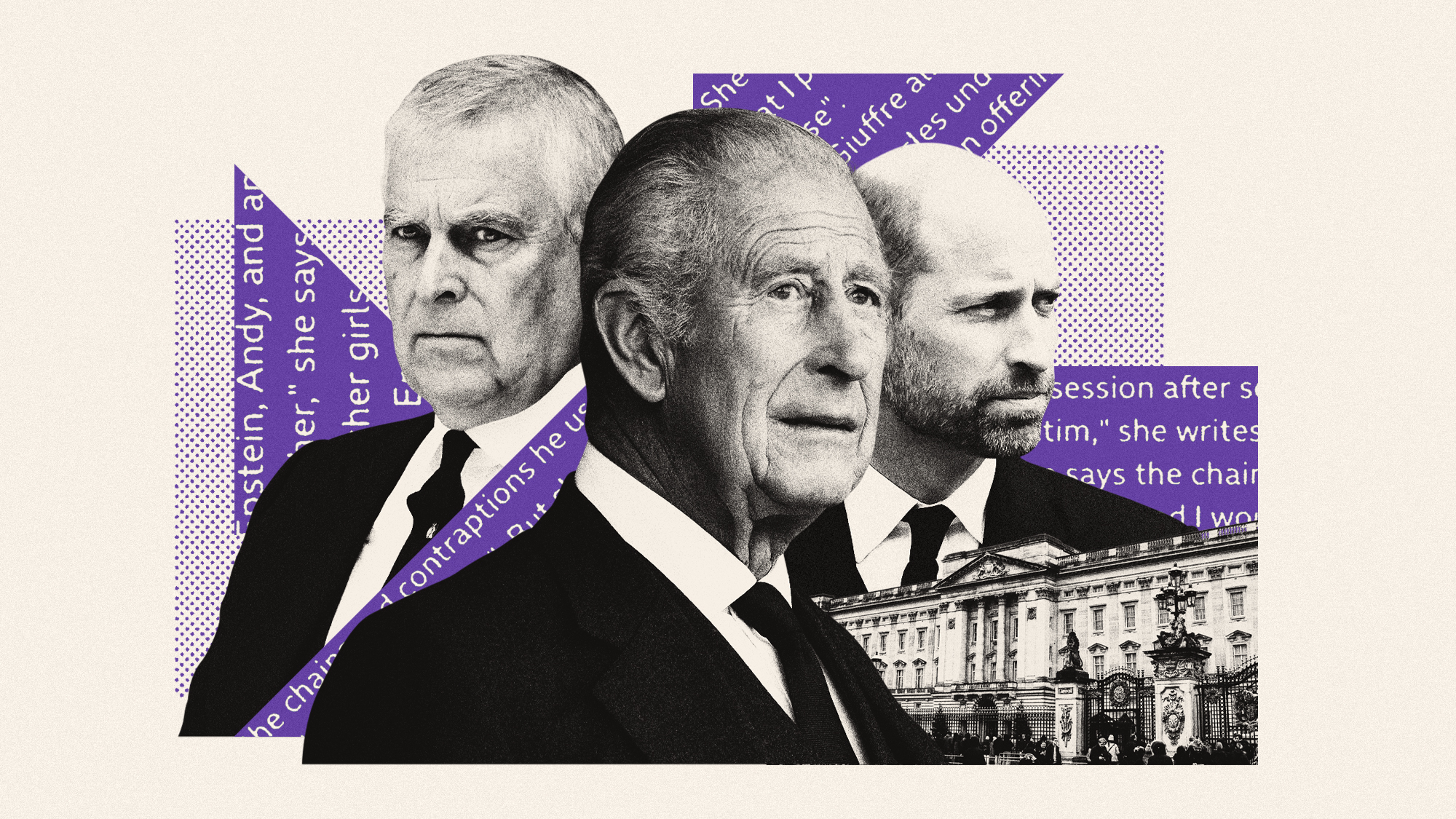 Prince Andrew: is the royal family doing enough?
Prince Andrew: is the royal family doing enough?Today’s Big Question King Charles faces calls for tougher action against Andrew after latest allegations about Virginia Giuffre and Jeffrey Epstein
-
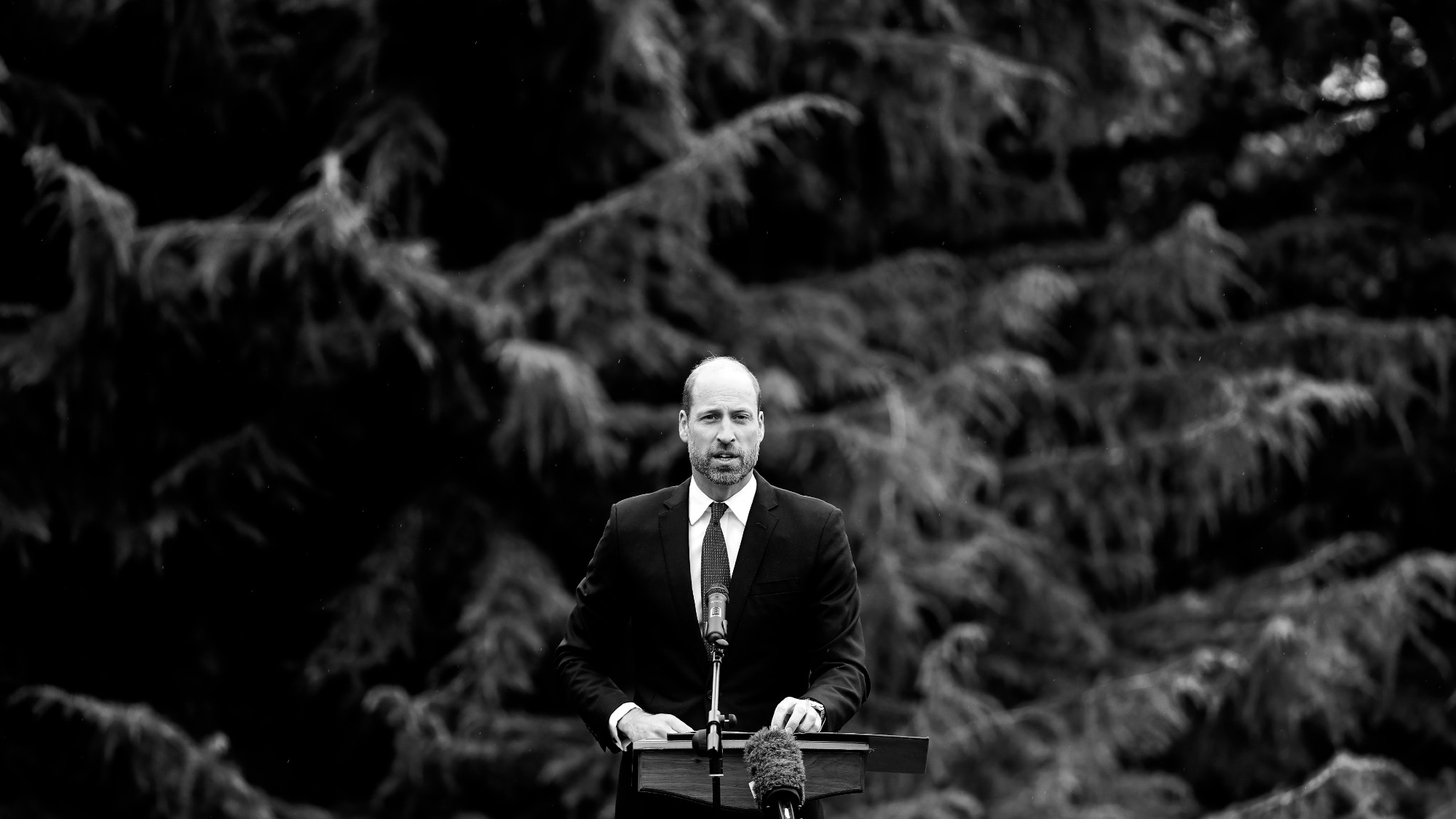 What will William be like as king?
What will William be like as king?Today's Big Question Prince of Wales said he won’t be ‘restricted’ by history when he takes the throne
-
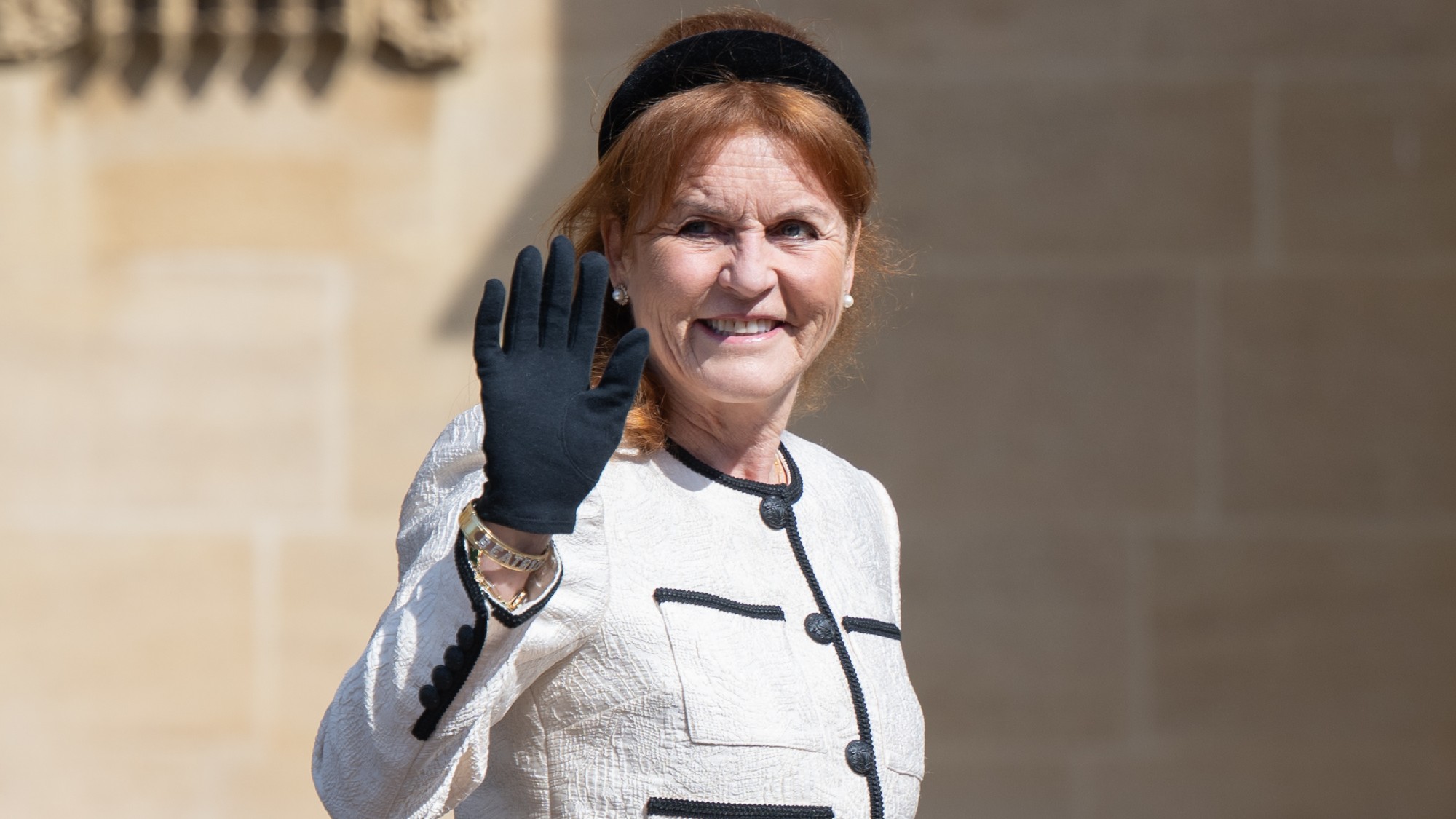 Sarah Ferguson: a reputation in tatters
Sarah Ferguson: a reputation in tattersIn the Spotlight After emails surfaced revealing ties to Jeffrey Epstein, weeks after she claimed to cut contact, her charities are running for the hills
-
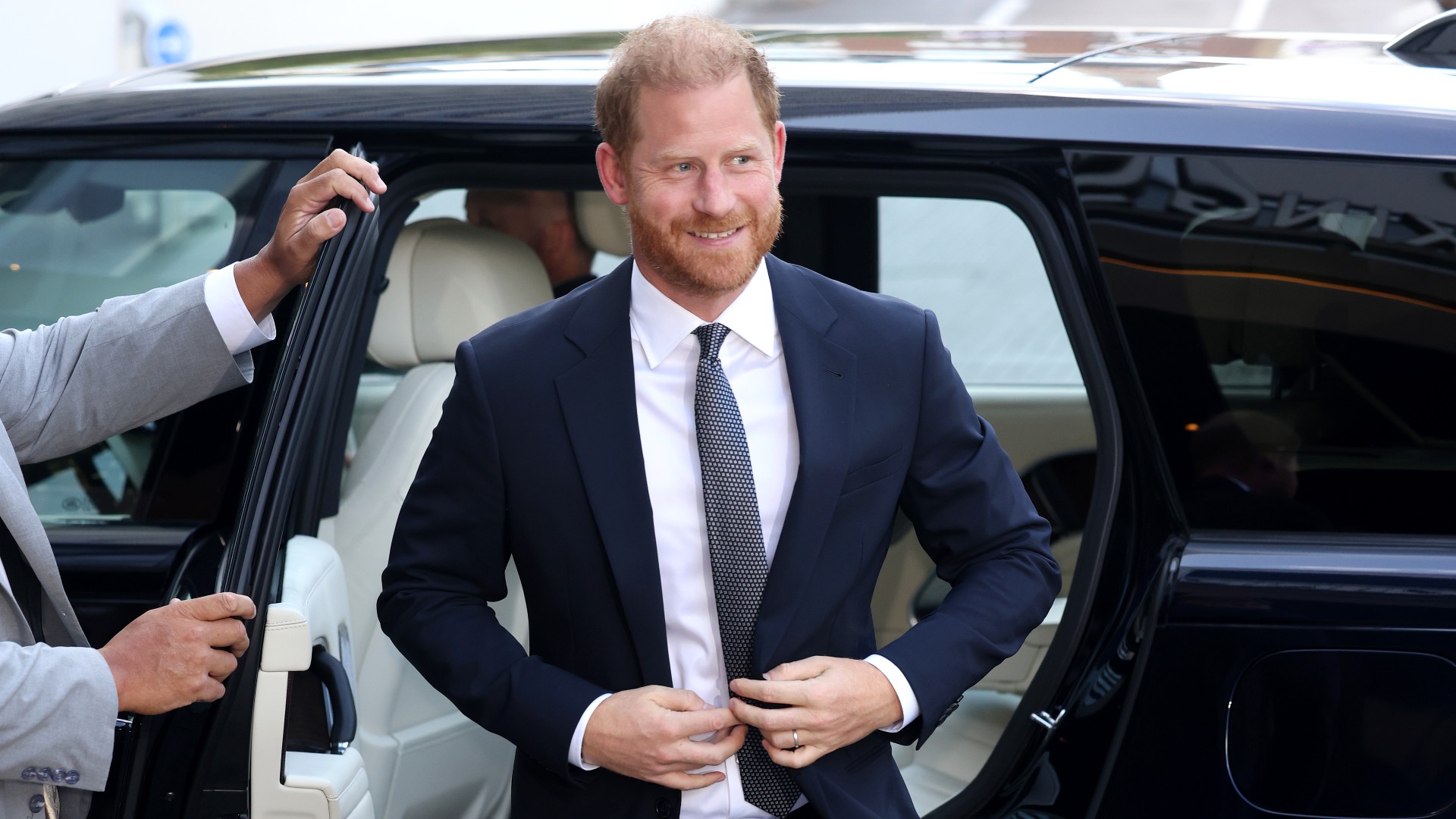 Prince charming: Harry’s tea with King sparks royal reconciliation rumours
Prince charming: Harry’s tea with King sparks royal reconciliation rumoursTalking Point Are the royals – and the UK public – ready to welcome the Duke of Sussex back in?
-
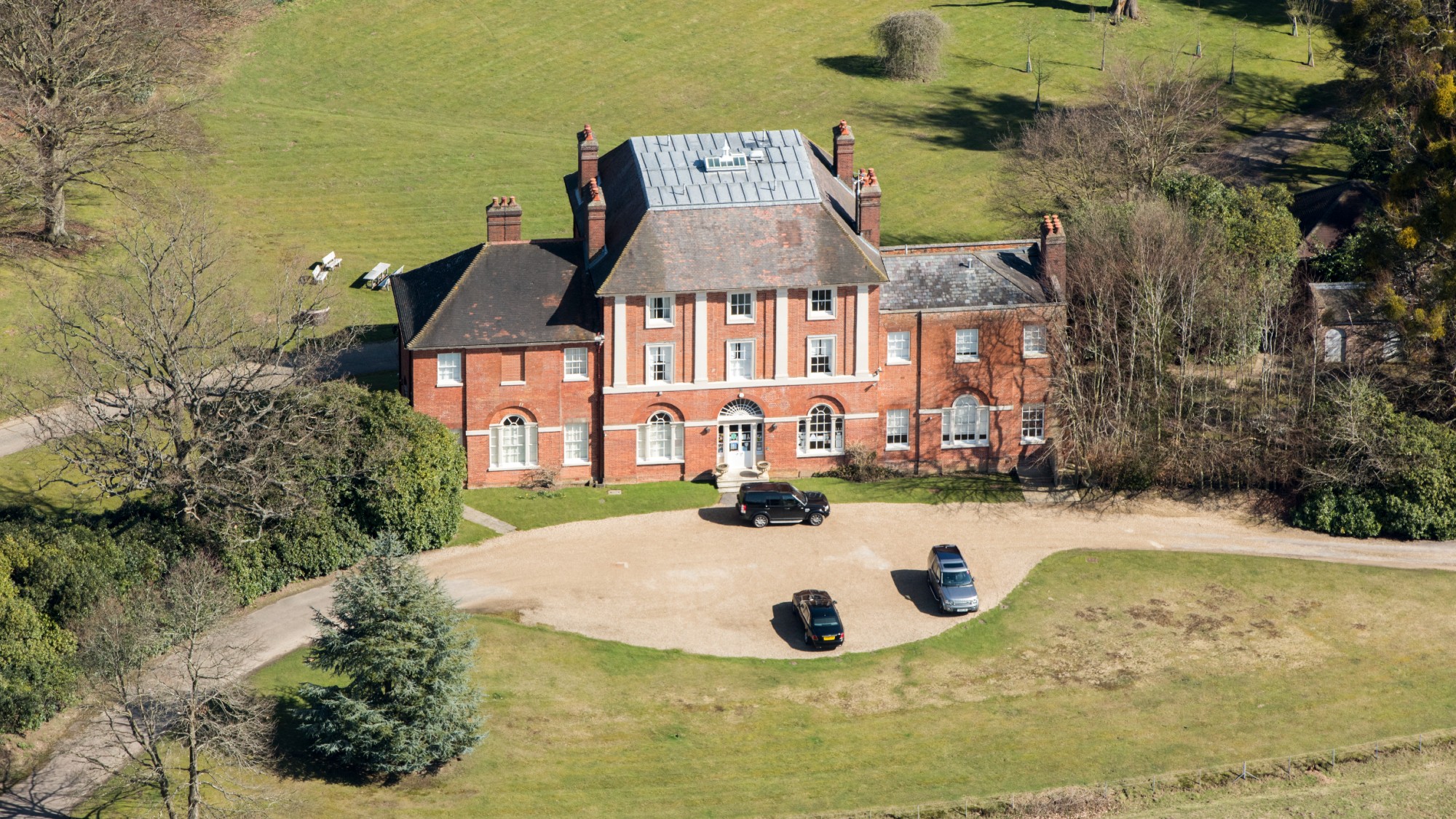 Forest Lodge: William and Kate's new home breaks with royal tradition
Forest Lodge: William and Kate's new home breaks with royal traditionIn the Spotlight Wales' said to hope move to 'forever home' in Windsor Great Park will 'leave unhappy memories behind'
-
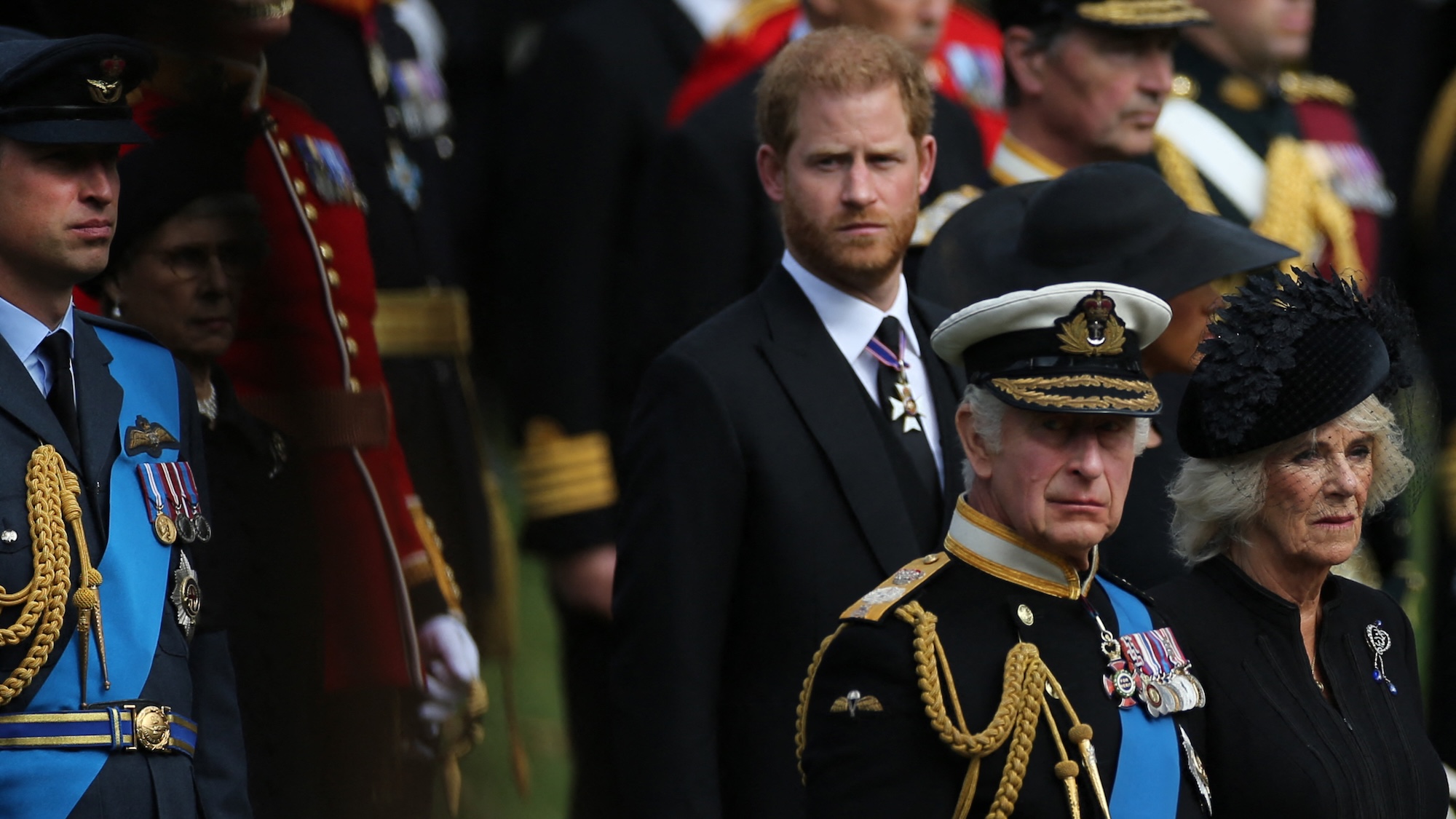 King Charles and Prince Harry: peace in our time?
King Charles and Prince Harry: peace in our time?Talking Point Leaked images of a secret meeting between royal aides suggest a dialogue is beginning to open up
-
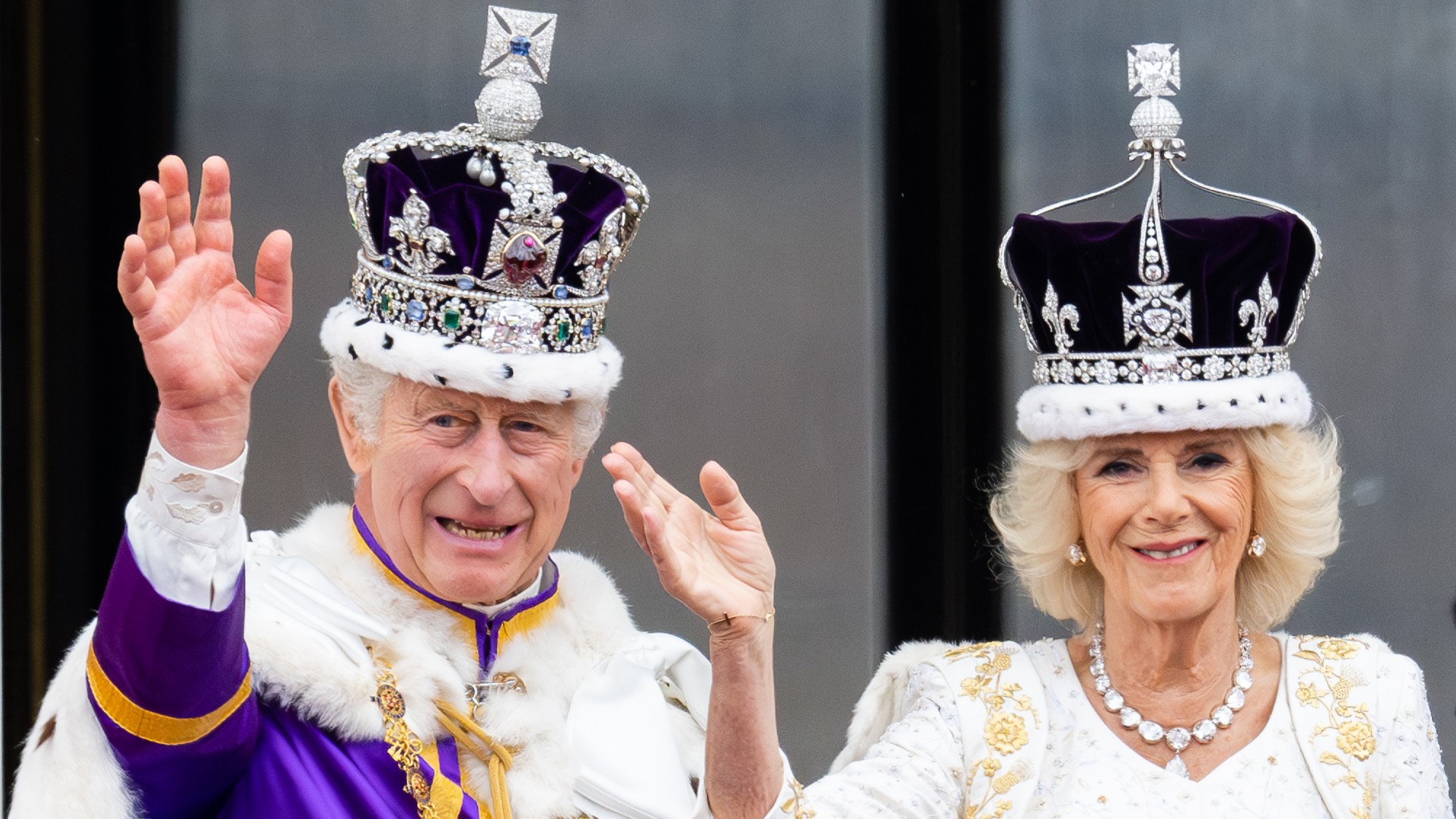 King Charles and the Sovereign Grant: how UK taxpayers fund the monarchy
King Charles and the Sovereign Grant: how UK taxpayers fund the monarchyThe Explainer Royals received £86.3m from government last year – and they are in line for a 50% increase
-
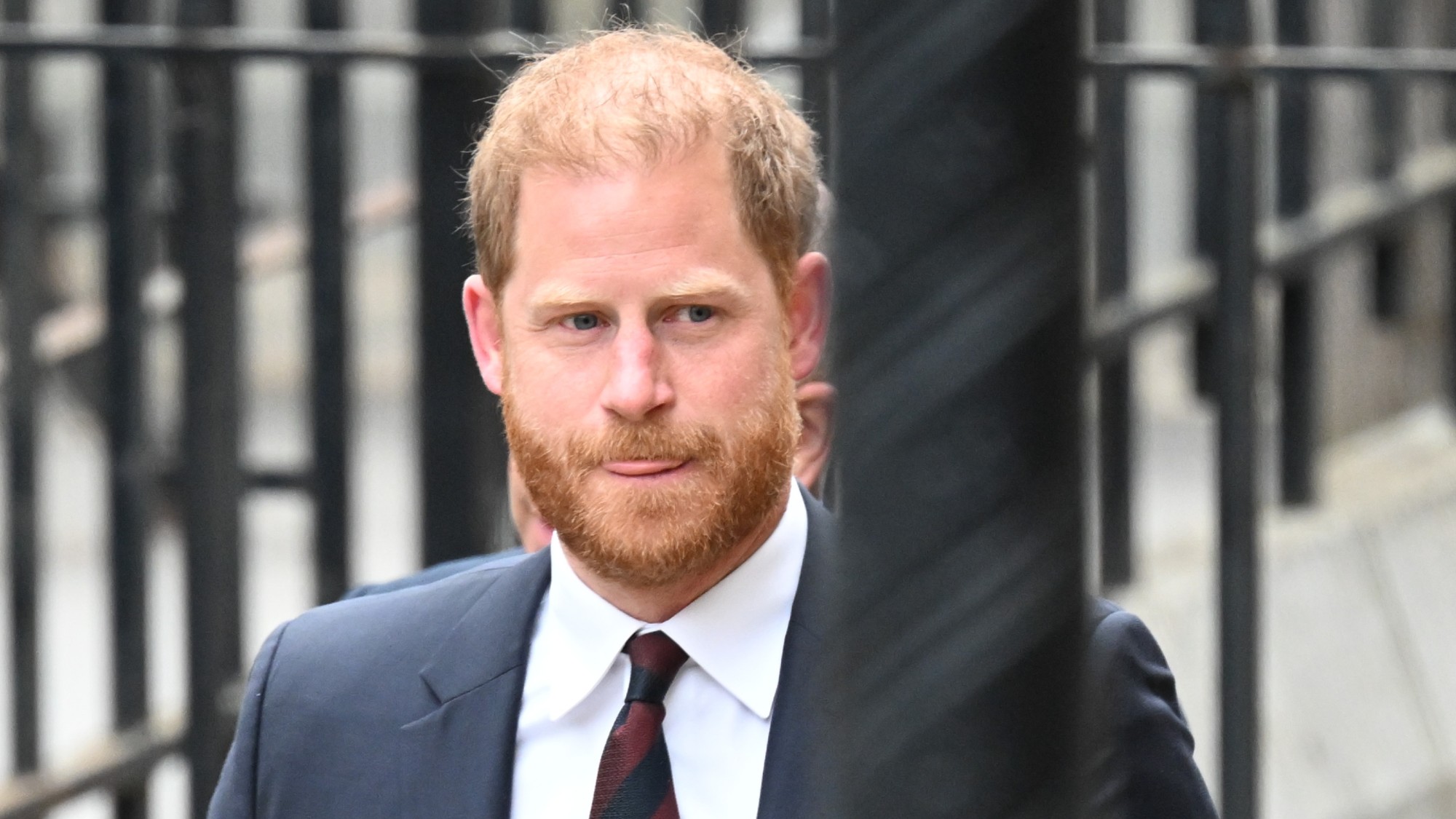 Prince Harry's 'bombshell' BBC interview
Prince Harry's 'bombshell' BBC interviewTalking Point Royal claims he is not safe to visit the UK and fuels speculation over King Charles' health in 'extraordinary' BBC interview